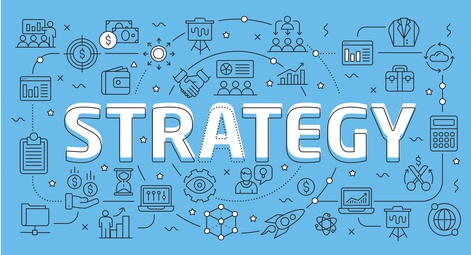I still remember vividly to this day, a sales pipeline review meeting, at a startup, where the product was missing a key feature that the customer needed to deploy it. Yet, the CEO kept badgering the VP of Sales about why the deal had not closed.
We went around in circles for 20-30 minutes about why the deal had not closed while the VP of Sales explained that the customer would not buy without it. It felt like groundhog day.
After the meeting, the VP of Sales and I grabbed lunch and while laughing over the discussion he looked me squarely in the eyes and said “hope is not a strategy”. While this was a sales discussion, that statement has stuck with me.
Fast forward a few years and I was in an management meeting at another startup, where they decided to launch a mobile app. When I asked how we would launch and promote the app, I was quickly told that it would be so cool that it would just go viral. That’s it! That was the strategy.
Now the expression “hope is not a strategy” was hitting home from a marketing perspective. They planned to build the app and hope that everyone downloads it. The other company hoped the customer would decide they didn’t need the feature. That’s not how you build a business or a successful marketing strategy.
I’m no longer at either company but I continue to hear stories that seem eerily similar to the ones above. When I do, I remember that expression and shake my head.
But, it should be clear that a marketing plan cannot be built on hope. Instead, it needs to be built on a strong foundation of understanding your buyer and their journey, crafting messages that explain how you can help them solve their problems and communicating the value and uniqueness of your solution.
For me, these are requirements of any marketing strategy and plan. It’s not a tactic that you hope will deliver the results you need. It’s not a beautifully designed site or video that you hope results in the buyer selecting your product.
While I said in my last blog post that your marketing did not need to be perfect and that you need to be more agile, I was not suggesting for a minute that you did not need a strategy. But, it cannot take months to develop. And, you cannot get bogged down in analysis or the pursuit of perfection before you launch.
Before you launch your next product or campaign, take some time (not a lot) to develop a proper marketing strategy with clearly defined goals, personas, messages, content, tactics, budget and a calendar. And then launch it on a specific date that is both ASAP and realistic. After that, measure and optimize. That’s a strategy. More on this next post.
There is always hope but it’s not your strategy!


Leave a Reply